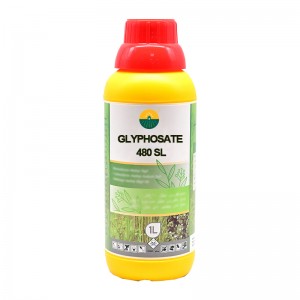What are perennial weeds?
Perennial weeds are a common challenge for gardeners and landscapers. Unlike annual weeds that complete their life cycle in one year, perennial weeds can survive for many years, making them more persistent and difficult to control. Understanding the nature of perennial weeds, how they differ from annual weeds, and effective management strategies is critical to keeping gardens and lawns healthy and aesthetically pleasing.
What is the difference between annual and perennial weeds?
Definition of annual weeds
Annual weeds germinate, grow, flower and die in one growing season. Examples include crabgrass and chickweed. They rely on seeds to reproduce.
Definition of perennial weeds
Perennial weeds live longer than two years and can reproduce by seed, root or stem. They are usually more tenacious and harder to remove. Dandelions and thistles are examples.
Which weeds are perennial weeds?
Common perennial weeds
Dandelion (Taraxacum officinale)
Canada thistle (Cirsium arvense)
Knotweed (Convolvulus arvensis)
Quackgrass (Elymus repens)
Tips for Identifying Perennial Weeds
Identifying perennial weeds involves looking for signs such as deeper root systems, spreading rhizomes or perennial structures such as tubers or bulbs.
How to Remove Perennial Weeds
Mechanical methods
Manual weeding: Effective for small infestations, but requires persistence.
Mulching: Inhibits weed growth by blocking sunlight.
Soil solarization: Use plastic sheeting to heat the soil and kill weeds.
Chemical methods
Herbicides: Selective herbicides target specific weeds and do not harm desired plants, while non-selective herbicides kill all vegetation.
Biological Control
Beneficial Insects: Some insects feed on perennial weeds and can reduce the spread of weeds.
Cover crops: Compete with weeds for resources and reduce their growth.
How do I know if my grass is annual or perennial?
Identifying Annual Grasses
Annual grasses, such as annual ryegrass, germinate and die within a season. They tend to be less robust and have different growth patterns than perennial grasses.
Identifying Perennial Grasses
Perennial grasses (such as Kentucky bluegrass) grow year after year. They have deeper root systems and form stronger turf.
Why are perennial weeds difficult to control?
Long-lived and hardy
Perennial weeds can survive harsh conditions and return year after year, making them more difficult to manage than annual weeds.
Extensive root systems
Perennial weeds have deep and extensive root systems that allow them to access nutrients and water more efficiently, making them more difficult to eradicate.
What is the easiest thing to use to control perennial weeds?
Integrated Pest Management (IPM): Combines mechanical, chemical and biological methods for effective control.
Ongoing monitoring: Regularly checking for weed growth and addressing problems in a timely manner.
Common Herbicides Used to Remove Perennial Weeds
Here are some common and effective herbicides that can be used to remove perennial weeds:
1. Glyphosate (Glyphosate)
Glyphosate is a non-selective herbicide that kills most plants. It gradually kills plants by inhibiting key enzymes needed for plant growth. It is suitable for the removal of a wide range of perennial weeds such as dandelion and milkweed.
Advantages:
Broad-spectrum, effective against a wide range of weeds
Short residual time and low environmental impact
Can be used as a preventive herbicide at low concentrations.

Herbicide Glyphosate 480g/l SL
2. 2,4-D (2,4-dichlorophenoxyacetic acid)
2,4-D is a selective herbicide that primarily targets broadleaf weeds without harming grasses. It is effective against many perennial broadleaf weeds such as plantain and dandelion.
Advantages:
Highly selective, safe for crops
Particularly effective on broadleaf weeds
Wide range of applications, easy to use
3. Triclopyr (Triclopyr)
Triclopyr is also a selective herbicide and is particularly effective on broadleaf weeds. It is commonly used to control shrubs and woody plants, as well as perennial weeds.
4. Dicamba
Dicamba is a broad-spectrum herbicide that kills many species of broadleaf weeds, including some perennial weeds. It can be mixed with other herbicides to increase effectiveness.
5. Imazapyr
Imazapyr is a broad-spectrum herbicide for long-term control of weeds and woody plants. It has a long residual period in the soil and will continue to suppress the growth of perennial weeds.
Precautions for using herbicides
Accurately identify target weeds: Before applying herbicides, accurately identify the perennial weeds to be removed to select the most effective herbicide.
Follow Directions: Formulate and apply herbicides in strict accordance with the directions on the product label to avoid injury to non-target plants.
Avoid skin contact and inhalation by wearing appropriate personal protective equipment such as gloves and masks when using herbicides.
Environmental Impact: Pay attention to environmental protection to avoid herbicide contamination of water sources and the surrounding environment.
By choosing the right herbicide and using it appropriately, you can effectively remove perennial weeds and keep your garden and lawn healthy and beautiful.
Weed classification and identification
1. Is Foxtail a perennial weed?
Dogwood (Foxtail) is not usually a perennial weed. There are annual species, such as yellow dogwood (Setaria pumila) and green dogwood (Setaria viridis), and perennial species, such as stiff-leaved dogwood (Setaria parviflora).
2. Is dandelion a perennial weed?
Yes, dandelions (Taraxacum officinale) are perennial weeds. They have deep roots and can survive and reproduce for many years.
3. Is dill a perennial?
Dill (Dill) is usually a biennial or annual plant, not a perennial. In the right climate, dill may self-seed, but it is not a perennial itself.
4. Is mandrake a perennial weed?
Mandrake (Jimson Weed, Datura stramonium) is an annual weed, not a perennial.
5. Is milkweed a perennial weed?
Yes, milkweed (Milkweed, Asclepias spp.) is a perennial. They are known for their drought tolerance and perennial characteristics.
6. Is plantain a perennial weed?
Yes, plantain (Plantain, Plantago spp.) is a perennial weed. They are very well adapted to a variety of environmental conditions and can survive for many years.
7. Is shepherd’s purse a perennial weed?
No. Shepherd’s Purse (Capsella bursa-pastoris) is usually an annual or biennial.
8. Is wild iris a perennial weed?
Yes, wild iris (Wild Iris, Iris spp.) are perennials. They typically grow in wetlands and grasslands.
Post time: Jun-18-2024








